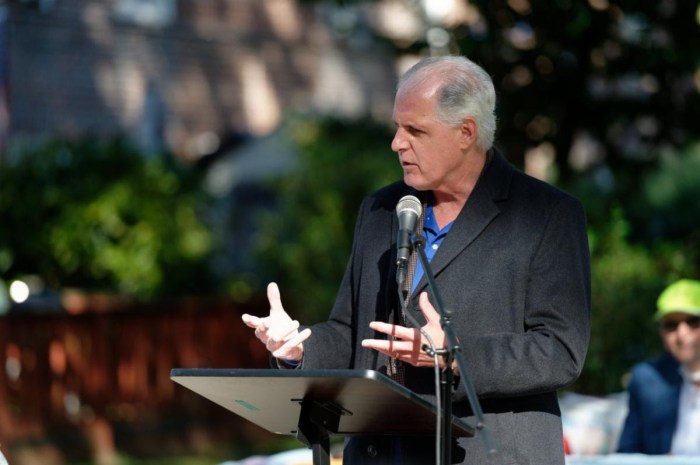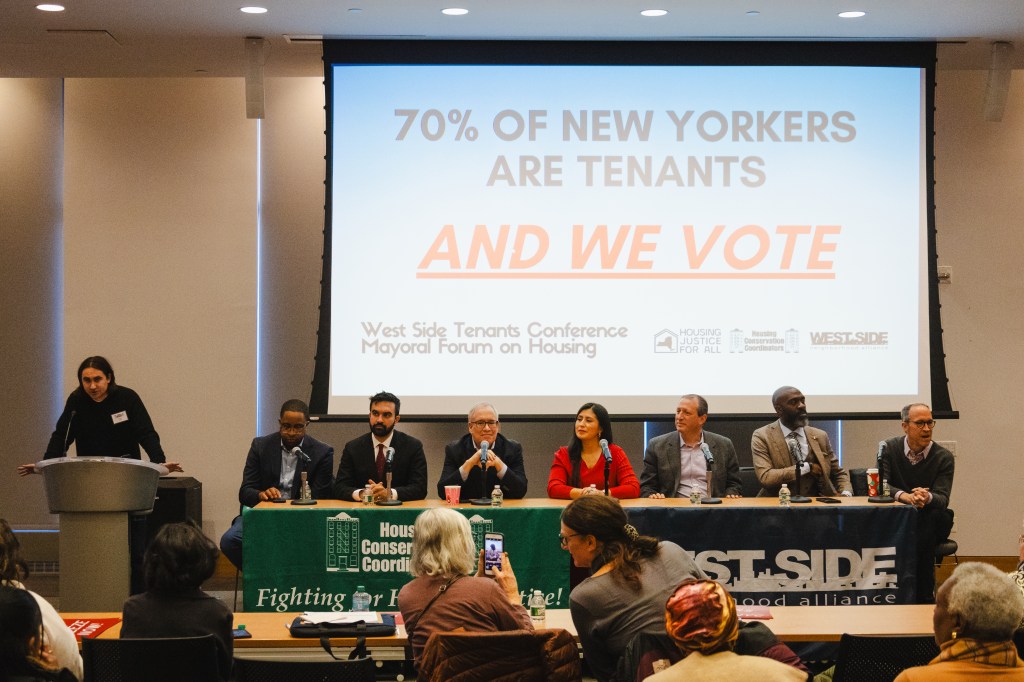By Arlene McKanic
A woman who was one of the first black Radio City Music Hall Rockettes came to Black Spectrum Theatre last month to advise a theaterful of wannabe celebrities a thing or two about the business.
The Black Spectrum Theatre in St. Albans held a workshop hosted by dancer and actress Selena Harris, who focused on “The Artist in the Arts,” or the business end of show business.
The day started with an unusual indoctrination into the world of professional theater. The kids who showed up — all but two of them girls — ranging in age from around 9 to 12, had to sign contracts they were provided after taking their seats in a circle on the stage.
“Once you get work as an artist, the contract is very important,” said Harris, a slender and ebullient young woman. Among the contract's stipulations were not to judge their fellow artists, not to talk when someone else is speaking, not to use improper language, to do their best, not to say they couldn't do something, to treat the workspace with respect, not to chew gum, and finally, to have fun.
After the contracts were read and signed they put the folders under their chairs and Harris talked a bit about herself and asked the children to do the same.
Harris started out as a dancer as a child and after junior high school auditioned for the High School of Performing Arts. Thanks to free programs such as the one she was directing that afternoon at the Black Spectrum Theatre, Harris was able to perform and travel in college for free and go on to get a Bachelor of Fine Arts in dance.
She asked the children what sort of performer they wanted to be and the kids ran the gamut from Kaneisha, who wants to be a triple threat (dancer, singer, actress) and hoped to work at the Black Spectrum, to Markia, who wants to direct, act, write her own movies and help other kids, to Elon, a sprightly little girl dressed all in white who evinced real star power, who wants to be a teacher and a supermodel.
A few of the children, it turned out, had been on professional auditions, one hanging around for six hours until she was called to perform. They described their experiences as nervewracking, boring, and exciting, usually all at once.
Later in their meeting, Harris made the kids stand up and shake out their arms and legs. “Give 100 percent!” Harris cheered. “Get that energy going!” She made them shout out, “I am an artist! I am an artist! I am proud to be an artist! I want to be an artist!” She pointed to each child and demanded, “Why do you want to be an artist?”
The answer was nearly always showed the children's naivete, “Cause I wanna get paid a lot of money!”
Later Harris led the kids into the audience and conducted something of a vocal audition, which was tricky because the scheduled pianist had failed to appear. Eventually one of the kids had to go to the piano and play the opening bars of “Old MacDonald had a Farm,” once softly, once loudly, and finally very fast.
Harris later admitted that the regular pianist was to have played a selection from “The Lion King,” the broadway musical a few of the children had actually auditioned for. In this exercise the children were to take on a persona — Harris played Whoopi Goldberg for demonstration — for each version of “Old MacDonald.” And they had to project an action, to make the audience feel scared, happy, restful or whatever, but most of them ran into a bit of trouble. This was curious, for when the children would come up to perform the ones in teh audience would suddenly be full of ideas.
Some of the kids came up to the front of the audience so listlessly, as if under duress, that Harris made them go back to their seats and return till they'd run up their energy level. But some of the kids were inventive, portraying TV characters and celebrities, animals, family members, or friends, and got through their auditions with a bit of elan.
During a break for lunch Harris sat down with the writer and showed her what else was in the folders the children had been given. The packets, in fact, were very thorough, containing not only the contract but sample query letters to agents, the sort of card you have to fill out when you go on a real audition, a sample resume and copies of Harris' headshot- not only a child performer but an adult could benefit from such efficiency.
Moreover, she was very impressed by the children who'd come to Black Spectrum that afternoon. “They were so disciplined,” she marveled. “They really knew what they were about, and so intelligent. They were really, really good kids!”
































